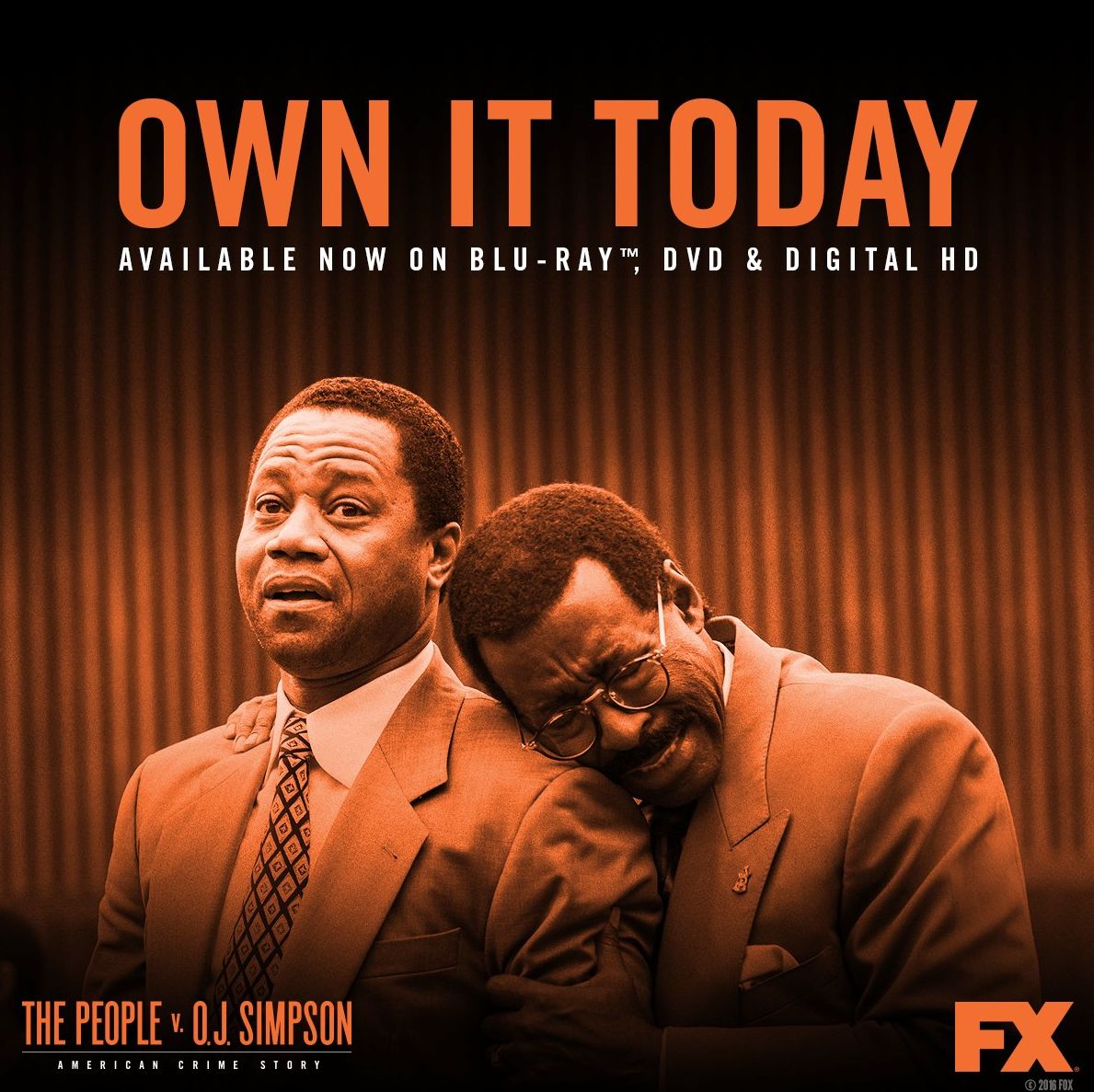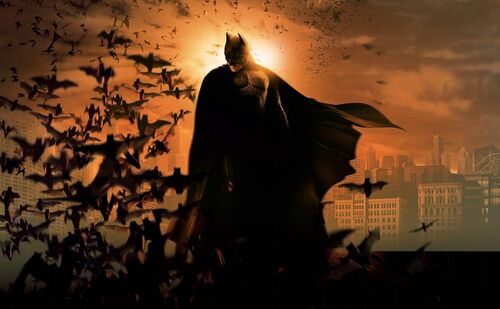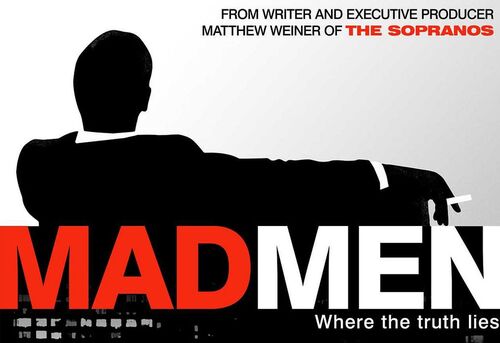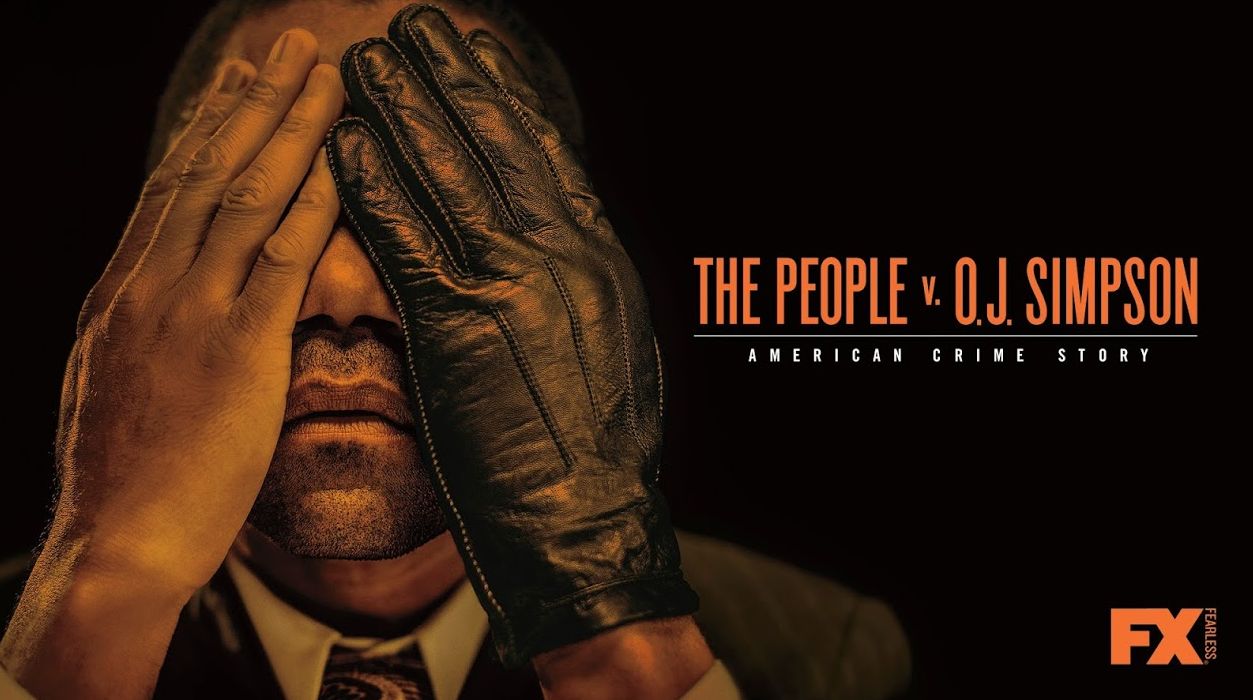
The People v O.J. Simpson: American Crime Story (2016) Review
 There are two episodes in this ten-episode season of television that felt just a touch underwhelming; the second episode, centered on suspect O.J. Simpson's run from the law with a gun to his own head, and the seventh episode, focused on the trials the jury faced during that torturous time cut off from the rest of the world.
There are two episodes in this ten-episode season of television that felt just a touch underwhelming; the second episode, centered on suspect O.J. Simpson's run from the law with a gun to his own head, and the seventh episode, focused on the trials the jury faced during that torturous time cut off from the rest of the world.
To be clear, these are integral episodes and, in regards to the latter, shed a light on areas rarely explored in dramatic, scripted television. So too, do they both demonstrate just what The People v O.J. Simpson: American Crime Story was doing. The series didn't focus its time on the accused celebrity, because that would have been a losing battle. We all know the result. And a majority of us have made up our minds about what happened in 1994 regardless of the verdict (or because of it).
Instead, the series wanted to spotlight everybody. It explored the police officers who found the grizzly crime scene. The reporters who landed on the scene and who infested the public with speculation and gossip for the months that proceeded. The prosecutors and the defense team, two sides at each others throats that provided some of the most heated drama of the year. The judge Ito, who was filled with jubilation at acquiring the job but who himself found himself at the center of public backlash.
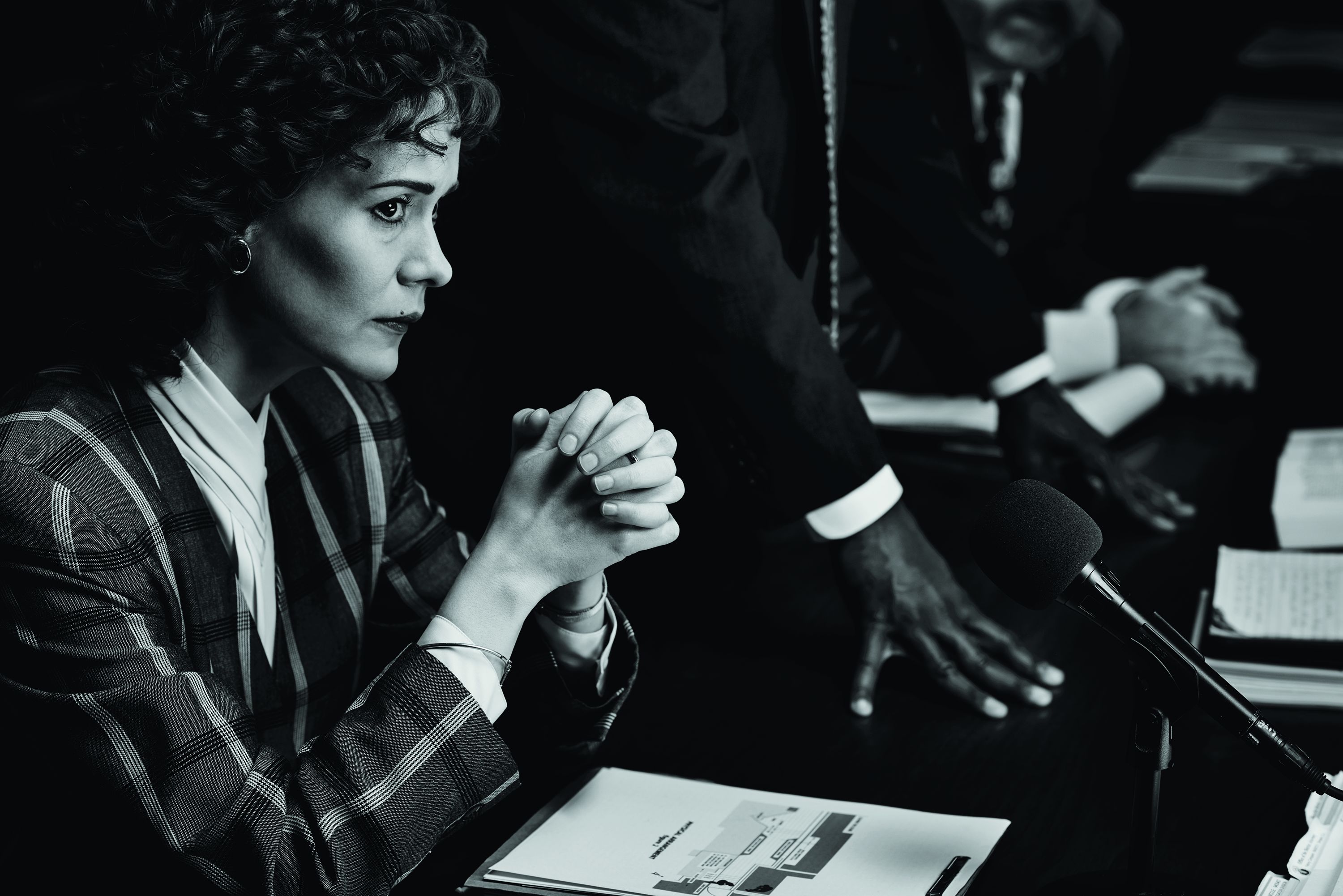
All of this went on to highlight that not one person came out of this trial, dubbed "the trial of the century," unscathed. In what is arguably the highlight episode of the series, District Attorney Marcia Clark finds herself under the microscope of the public eye, and is pulled apart by the media and the public for everything and, mostly, nothing, such as her crimes of fashion. The woman's heartache and anguish at the world she'd been thrust into, the world of fame, for which she had no interest or love, was difficult to watch. It's a good time to highlight the first actor in this wide-reaching ensemble. Sarah Paulson is remarkable in the role. She sells every line of dialogue. Every tear is one we feel. Her devotion to the victims is unifying. Her performance made it hard to believe that people threw garbage her way during the course of the trial.
Courtney B. Vance plays opposite Paulson as Johnnie Cochran, and his performance is mesmerising. He plays a charismatic, deeply devoted, and aggressively opinionated attorney who will stop at absolutely nothing to win the case and, more importantly, bring awareness to the world of the injustices black people face at the hands of the LAPD and other bodies around the nation. He single-handedly turns the case into a circus, throwing lies and deceit at the jurors and at the public, turning his own misdemeanors back on the reporters who question him on past actions, and fuels a rivalry with opposing attorney Christopher Darden, at times calling him, a fellow black man, a racist, in some of the most stirring sequences of courtroom drama you're likely to see on the small screen.
Sterling K. Brown plays Darden with heart and a good deal of courage, though the character seems to make a number of hard-to-excuse mistakes even if his heart is in the right place. Ultimately, he's a victim of succumbing to Cochran's manipulative devices. Both men end up on opposing sides despite the fact that they both desperately fight for equality. Marcia focuses far less on the racial implications of the case, instead often crying out against the obvious celebrity worship that's going on. Particularly when the police are questioning O.J. Simpson in the poorest of ways, she demands that the man's status in the sport-loving world "shouldn't matter." But it does, and it ultimately dictates much of the public angle of the case.
Its themes are evident, and they are many. Celebrity worship, via the public's response to Simpson's arrest (O.J. is played by Cuba Gooding Jr., who is at times wooden, but is far from the center of attention, both ironically and thankfully), racial vilification, an extension from the deep exploration of the relationship between the police and the public, and media manipulation, driven home by highlights such as the two posters of O.J., with one outlet opting to "make him blacker" in order to emphasize his villainy. Some of these themes are at times heavy-handed, and sometimes the dialogue can be a little clunky, but it's all delivered in pristine fashion by a cast that really did knock it out of the park.
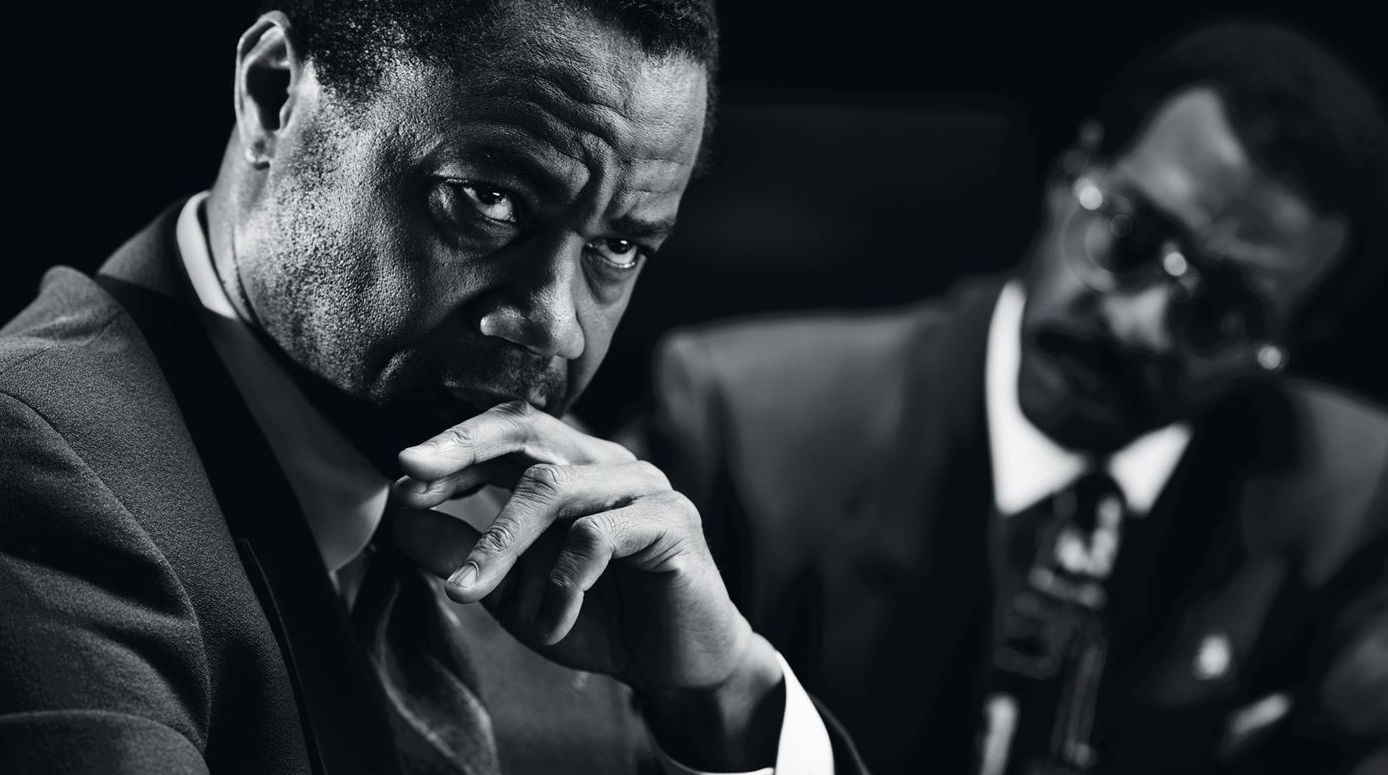
John Travolta was one particular part of the series I was curious about. My little experience with his acting hadn't sold me, and yet in those opening episodes, the character of Robert Shapiro came across as a legend of sorts. Shapiro was well spoken, confident, and dedicated. But as the series wore on, that calmness was replaced by an almost petty, childlike distaste for much of what the defense team had planned courtesy of new leading man Cochran's own agenda. He is clearly a selfish man, and though at times he spouts intelligent, relevant pieces of wisdom, he can just as quickly revert back to that petulant state. At one moment insufferable, the next, sympathetic, Travolta was impressive in the role, and did everything he could with what he was given. David Schwimmer often made me forget that he was David Schwimmer as he portrayed Robert Kardashian, adding that necessary element of doubt to the winning side that made for some tragic, if sometimes unnecessary, sequences between he and his ex-wife.
When all is said and done in court, we watch as Marcia and Darden are dejected and lost after a brutal loss, ending months and months of turmoil in the most hollow of fashions. When archive footage of people congregating on the streets to celebrate flash onto the screen, the show envisaged the anger its audience would feel. It's difficult to watch people celebrate a conviction based on the man's status, but a lot of that celebration was also for racial equality. It's an incredibly difficult, morally ambiguous range of emotions the audience is being forced to feel. Ultimately, many of us will see the series cut to black, and feel that justice was not served. And it may just make us feel anguish because the one thing that very system should guarantee is that justice, above all, will be served for the victims of any one case.
The People v O.J. Simpson is one of the most compelling dramas of the year. It has meaning and impact, and addresses issues that sadly still exist today. It's a relevant and challenging series, driven by emotion and by real people who share their short-lived wins and sinking losses with us. Every blow to the prosecution, we feel, and despite knowing full well what that verdict was going to be in the series finale, it's a testament to the series that the "not guilty" verdict hurt. It is great drama that can have us pray for a different result, even when we know the events it's based off ended differently. Going into the series, we know it will leave us as dejected as the characters on the screen. In the end, it's worth it for the ride.
